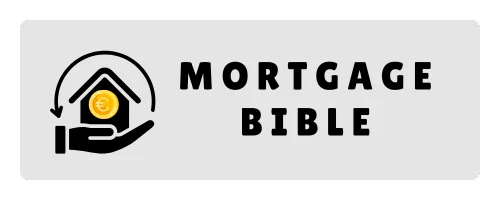Why Consider a Fixer-Upper Mortgage?
Purchasing a home that needs some TLC can be a smart financial move if you’re ready to put in the effort. Fixer-upper mortgages allow buyers to finance both the purchase price and the cost of renovations in a single loan. This means you can unlock the potential of a property that might initially seem out of reach due to its condition. These loans can open the door to your dream home by giving you the funds needed to bring a rundown house back to life.
Many homebuyers opt for fixer-upper mortgages because they provide flexibility, enabling customization and potential equity growth. By understanding how these loans work, you can confidently embark on a home-buying journey that results in a personalized and valuable property.
Understanding Fixer-Upper Mortgages
What Are Fixer-Upper Mortgages?
Fixer-upper mortgages, sometimes called renovation loans, are specialized financing options designed for homes that require repairs or improvements. Instead of getting a traditional mortgage and a separate renovation loan, these mortgages bundle everything into one package. This makes the buying process simpler and often more cost-effective.
Common types of fixer-upper mortgages include:
– FHA 203(k) Loans: Backed by the Federal Housing Administration, these loans allow for various repairs and upgrades with low down payment requirements.
– Fannie Mae HomeStyle Renovation Loans: These loans cover a wide range of repairs and offer conventional financing options for owner-occupied homes.
– VA Renovation Loans: Available for eligible veterans, these loans finance home improvements alongside the purchase.
How Do They Work?
With a fixer-upper mortgage, the lender bases your loan amount on the projected value of the home after renovations are completed. This “after repair value” (ARV) includes the current market price plus the estimated cost of repairs. Funds for repairs are typically held in escrow and released progressively as work is verified.
The process generally involves:
1. Home appraisal including repair estimates
2. Loan qualification based on ARV and creditworthiness
3. Closing the loan and starting repairs
4. Inspections and disbursements during renovation
5. Completion and final appraisal
This clear pathway helps lenders manage risk while giving you financial support tailored to renovation projects.
Key Benefits of Using Fixer-Upper Mortgages
Build Equity Quickly
One of the biggest reasons buyers opt for fixer-upper mortgages is the potential to build equity right from the start. By purchasing a home below market value and investing in improvements, you increase its worth, creating instant equity once renovations are complete.
Personalize Your Space
These loans give you the freedom to customize your new home exactly how you want. From modernizing kitchens to adding energy-efficient features, you can design a living space that fits your lifestyle without compromising.
Lower Upfront Costs
Since you’re financing all renovation expenses in one mortgage, there’s no need to pay for repairs out of pocket or seek additional loans. Many fixer-upper mortgages have competitive interest rates and low down payment options, making homeownership more attainable.
Expand Housing Choices
With fixer-upper mortgages, you aren’t limited to move-in-ready homes. This broadened inventory enables buyers to explore diverse neighborhoods and styles that might otherwise be financially off-limits.
Navigating the Application Process for Fixer-Upper Mortgages
Prepare a Detailed Renovation Plan
Lenders require a clear, itemized scope of the repairs and improvements you plan to make. Having quotes from licensed contractors and a timeline helps demonstrate feasibility and manage expectations.
Qualify Financially
Qualifying for a fixer-upper mortgage involves reviewing your credit score, income, debts, and the property’s ARV. Strong credit and stable income improve your chances of approval and favorable terms.
Selecting the Right Loan Program
Deciding which fixer-upper mortgage suits your needs depends on factors like down payment availability, property type, veteran status, and repair extent. HUD-approved lenders can help you navigate these choices.
Work With Experienced Professionals
Partnering with a mortgage broker or loan officer familiar with renovation loans makes the application smoother. Contractors and appraisers experienced in renovation projects also ensure accurate estimates and inspections.
Common Challenges and How to Overcome Them
Unexpected Repair Costs
Renovation projects often uncover surprises that increase costs. Mitigate this by including a contingency budget and choosing reliable contractors who provide thorough inspections before work begins.
Extended Timelines
Delays can occur due to permit approvals, labor shortages, or material backorders. Planning realistic timelines and staying in constant communication with contractors helps keep projects on track.
Loan Approval Hurdles
Some lenders may hesitate due to the added complexity of renovation lending. Improve your application by maintaining a strong credit profile and presenting detailed documentation of your renovation plan.
Resale and Market Risk
While renovations usually add value, market fluctuations can impact final sale prices. Research neighborhood trends and work with real estate experts to assess investment risks ahead of time.
Tips for Successfully Managing Your Fixer-Upper Project
– Prioritize repairs by focusing on structural issues and essential systems like plumbing, electrical, and roofing first.
– Create a realistic budget that includes materials, labor, permits, and contingencies.
– Keep open communication with your lender to ensure timely release of renovation funds.
– Document progress with photos and receipts for smoother inspections and approvals.
– Consider DIY aspects cautiously; avoid work that requires permits or specialized skills.
– Plan for temporary living arrangements if the home is uninhabitable during repairs.
Following these strategies can help turn your renovation dream into a stress-free reality.
Success Stories: Turning Fixer-Uppers into Dream Homes
Many homeowners have leveraged fixer-upper mortgages to transform challenging properties into stunning homes. For example, one first-time buyer used an FHA 203(k) loan to purchase a century-old house with outdated systems and a neglected kitchen. After strategic renovations funded by the loan, the home increased in value by over 30%, and the buyer now enjoys a unique, personalized space.
Another case involves a veteran who utilized a VA renovation loan to modernize a fixer-upper near a growing employment hub. The investment allowed for comfortable living and improved resale potential in a competitive market.
These stories highlight how fixer-upper mortgages empower diverse buyers to achieve homeownership beyond move-in-ready options.
Resources to Explore Fixer-Upper Mortgages Further
For more detailed information and lenders specializing in fixer-upper mortgages, you can visit trusted sources such as the U.S. Department of Housing and Urban Development (HUD) website (https://www.hud.gov) or consult local housing authorities. Additionally, mortgage professionals can provide personalized guidance tailored to your renovation goals.
Exploring available loan programs and talking to experienced advisors will give you clarity and confidence to proceed with your dream home project.
The path to homeownership does not have to be limited to perfectly renovated properties. Fixer-upper mortgages offer an accessible and financially savvy way to invest in homes with potential. By understanding loan options, preparing a solid renovation plan, and working with the right professionals, you can unlock the door to a customized dream home that fits your budget.
Ready to take the first step? Visit khmuhtadin.com to connect with expert mortgage advisors who can help you explore your fixer-upper mortgage options and guide you throughout the process. Your dream home project awaits!




